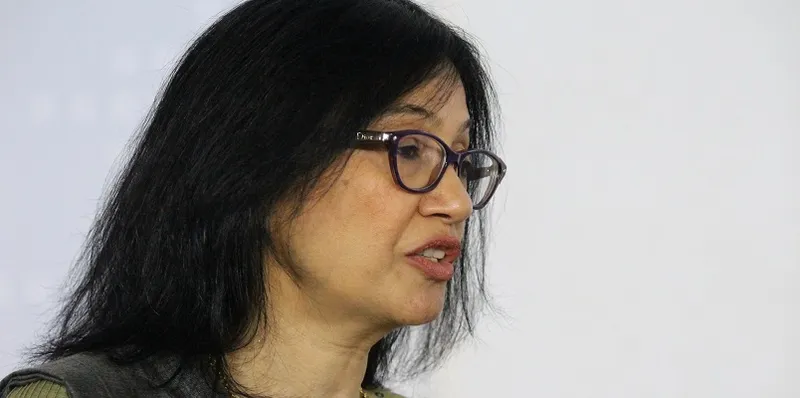'Artificial intelligence will complement human effort, not replace it,' say top CEOs
Corporate houses discussed ways in which converging technologies should be responsibly harnessed to drive growth.
The CEO Roundtable at the Bengaluru Tech Summit on Thursday was a lesson to young individuals that they need not worry about Artificial Intelligence (AI) because it would only add to their skills. It highlighted how the industry presented itself with opportunities and is also prepared for issues facing the industry. The discussion had its broad theme as ‘How diverse technologies are converging to shape our world, impacting the society.’
The speakers said that technology never replaced humans, but enabled them to go do better jobs, or could even improve their lives in many cases. The re-emerging technologies such as AI, Internet of Things, Augmented Reality/Virtual Reality (AR/VR) were all part of that change and they will converge to make things better.

The discussion traced the evolving business models and new economies emerging out of these new converging technologies. The focus was also on new challenges that will revamp the traditional business models. The panelists also stressed on the need to make technology affordable along with the innovation cycle, and how companies can scale with startups.
Vijay Chandru, Chairman of Strand Life Sciences, talked about the opportunities through IT-biotech linkages. On the decision-making capabilities of AI in healthcare, he had this to say: “At no point will that be allowed to happen. Advances in AI will only increase the productivity and effectiveness of the system.”
Nivruti Rai, Country Head, Intel India, explained that new-age chips can mimic the human mind and that Intel is working on revolutionary developments in AI. “AI has been a part of Intel, along with several other companies for almost half a century, in terms of using AI for hiring, safety,” she said.
A key argument made by Nivruti was that “jobs don’t go away because of technology; jobs are created because of technology.”
AI is about memory, logic, and computation, and these things will always be programmed by humans, she added.
Shifting the focus to driverless cars, Kamal Bali, MD of Volvo India, emphasised on the much-needed push for electric vehicles. He then went on to trace the opportunities, possibilities, and challenges for the Indian auto sector of the future. Kamal also has a unique outlook on the labour market of India. “We have enough manpower in India. Places to network, however, are limited and we must focus on handling change,” he added.
According to Nachiket Sukhtankar, Senior Managing Director, Accenture, the platform created by the Government of Karnataka was apt to discuss technology skills, jobs of the future, the impact of intelligent automation, and driving better business outcomes with converging technologies. The panel spoke about responsible AI practices and the pitfalls of reckless AI practices by large corporates in the future. The criticality of this was driven home by the reference to Elon Musk’s remark that unregulated AI can be an existential threat.







